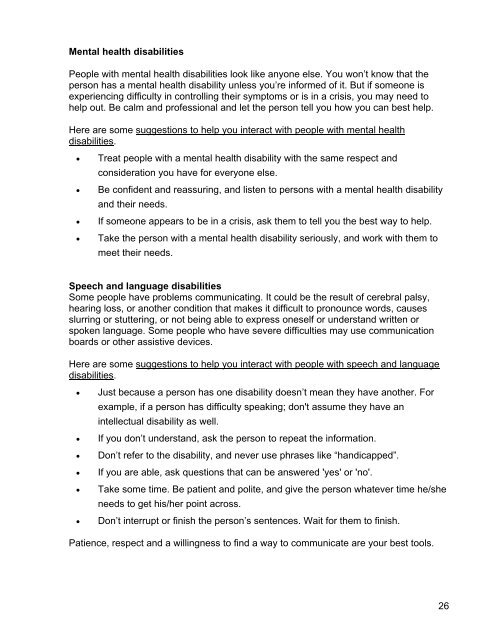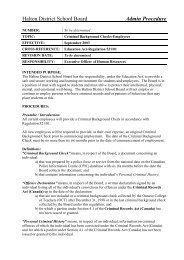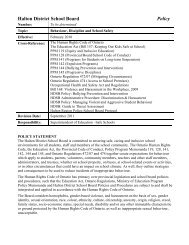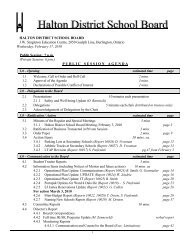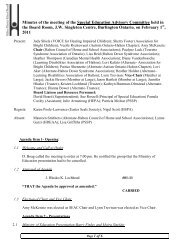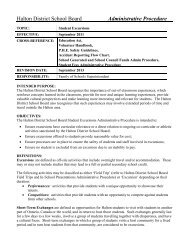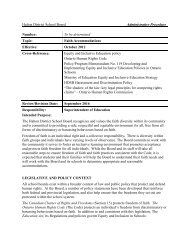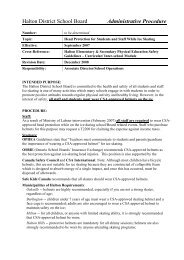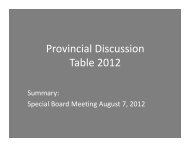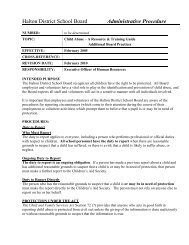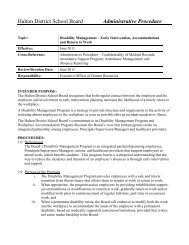2006-2007 Accessibility Plan - Halton District School Board
2006-2007 Accessibility Plan - Halton District School Board
2006-2007 Accessibility Plan - Halton District School Board
Create successful ePaper yourself
Turn your PDF publications into a flip-book with our unique Google optimized e-Paper software.
Mental health disabilities<br />
People with mental health disabilities look like anyone else. You won’t know that the<br />
person has a mental health disability unless you’re informed of it. But if someone is<br />
experiencing difficulty in controlling their symptoms or is in a crisis, you may need to<br />
help out. Be calm and professional and let the person tell you how you can best help.<br />
Here are some suggestions to help you interact with people with mental health<br />
disabilities.<br />
• Treat people with a mental health disability with the same respect and<br />
consideration you have for everyone else.<br />
• Be confident and reassuring, and listen to persons with a mental health disability<br />
and their needs.<br />
• If someone appears to be in a crisis, ask them to tell you the best way to help.<br />
• Take the person with a mental health disability seriously, and work with them to<br />
meet their needs.<br />
Speech and language disabilities<br />
Some people have problems communicating. It could be the result of cerebral palsy,<br />
hearing loss, or another condition that makes it difficult to pronounce words, causes<br />
slurring or stuttering, or not being able to express oneself or understand written or<br />
spoken language. Some people who have severe difficulties may use communication<br />
boards or other assistive devices.<br />
Here are some suggestions to help you interact with people with speech and language<br />
disabilities.<br />
• Just because a person has one disability doesn’t mean they have another. For<br />
example, if a person has difficulty speaking; don't assume they have an<br />
intellectual disability as well.<br />
• If you don’t understand, ask the person to repeat the information.<br />
• Don’t refer to the disability, and never use phrases like “handicapped”.<br />
• If you are able, ask questions that can be answered 'yes' or 'no'.<br />
• Take some time. Be patient and polite, and give the person whatever time he/she<br />
needs to get his/her point across.<br />
• Don’t interrupt or finish the person’s sentences. Wait for them to finish.<br />
Patience, respect and a willingness to find a way to communicate are your best tools.<br />
26


